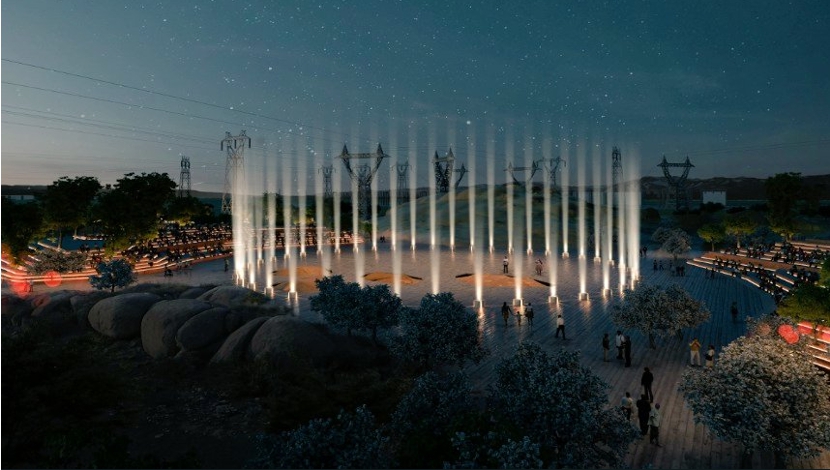

Platinum producer Lonmin on Tuesday unveiled its proposed design for a Marikana memorial park and announced the occupation of its infill apartments a day before the fifth anniversary of the Marikana massacre.
The memorial project is still in its infancy and the company will consult with employees and stakeholders on the proposed design, which is developed around the concept of a green blanket, emblematic of the garment worn by late Marikana protest leader Mgcineni Noki.
The proposed site for the memorial park is situated between the informal settlement of Nkaneng and an Eskom substation.
Within this area, the ‘green blanket’ – formed by landscaping – will stretch over three hills to signify new hope.
“The tragedy at Marikana has changed all of us. Our vision for this memorial is to create a place that will commemorate the lives that were lost and give all of us a space for remembrance, reminding us and future generations that an event like this must never happen again,” Lonmin CEO Ben Margara said at the unveiling.
Later additions to the site may include an amphitheatre, with 44 embedded seats; a museum showcasing the history of platinummining in South Africa and detailing the events of the tragedy; a restaurant; and a soccer field.
Lonmin, meanwhile, also launched the first two phases of infill apartments at the Wonderkop and Eastern sites, close to the company’s converted hostel family units.
The apartments are being built on land belonging to the Bapo Ba Mogale tribal authority, in accordance with the lease agreement Lonmin has with the tribal authority.
The R410-million development currently comprises 493 completed units, of which 403 have been occupied by the company’s employees.
A further 300 units, which form part of Phase 3 are currently under construction and will be ready for occupancy in December.
Phase 4 will be completed by the end of 2018, with residents taking up occupancy at the beginning of 2019.
“The entire infill project is representative of lessons we have learnt during the past five years. We sought the employees’ input at each stage of planning and building; initially through a special task team, and then through a joint forum,” Lonmin executive VP for HR Khaya Ngcwembe said.
He added that around 1 050 jobs were created through the development of the apartments, which were built by local black-owned construction companies Gomolemo and Bongekile.
Lonmin has just completed an employee accommodation survey which has now clarified where the company’s employees stay, where they come from and where they would prefer to stay, within their means.
“These insights will be incorporated into Lonmin’s revised employee accommodation strategy, which commences in 2019,” Ngcwembe stated.
More news
- N2 rehabilitation project to be completed end of this year
- Siemens to build two gas-powered electricity plants in Libya
- International team unveil 76,000 m2 waterside development in Abu Dhabi
- Gift of the Givers to unveil aquifer project in drought-stricken Beaufort West
- Kenya: one million low cost houses to be constructed over the next five years

